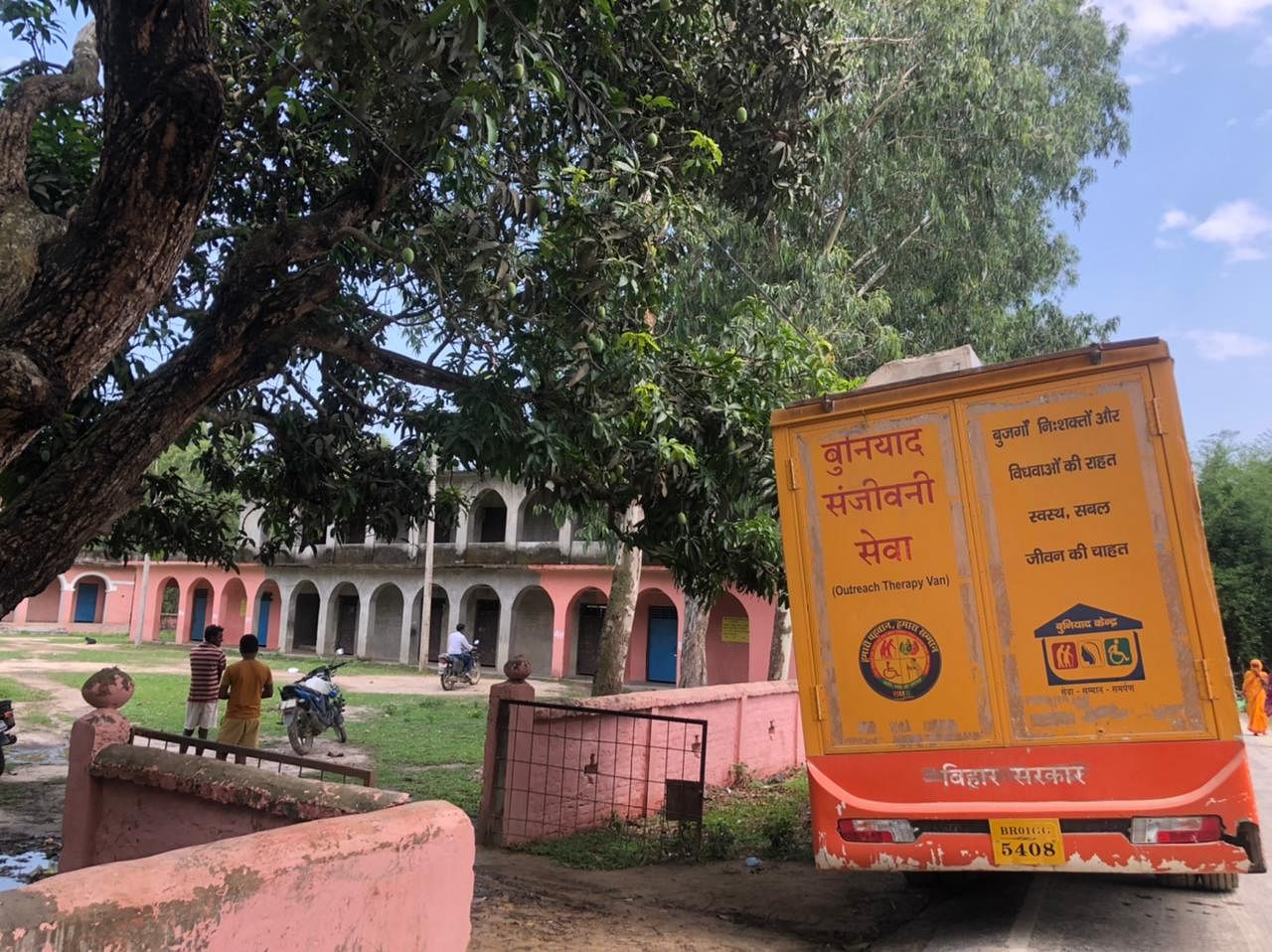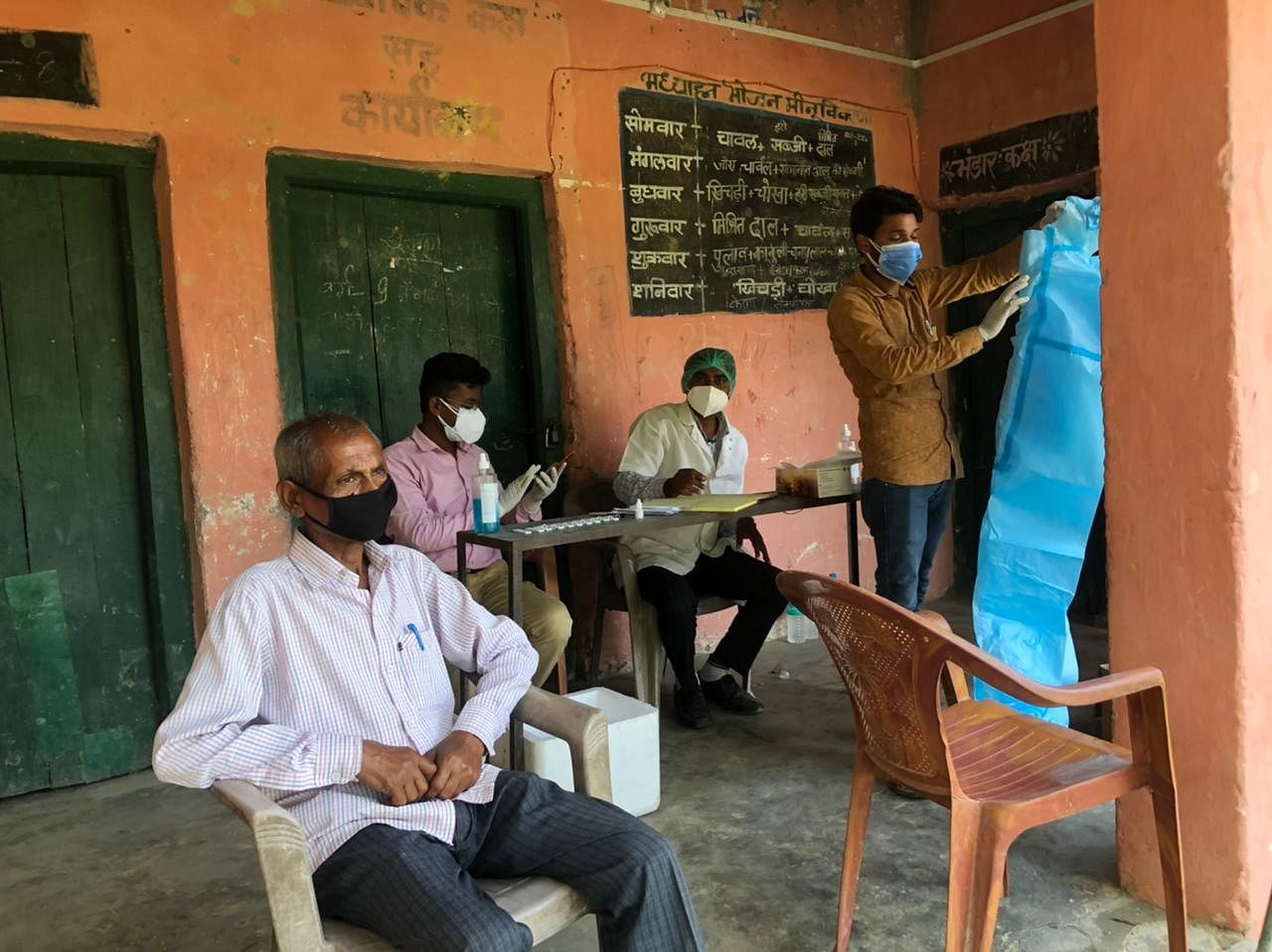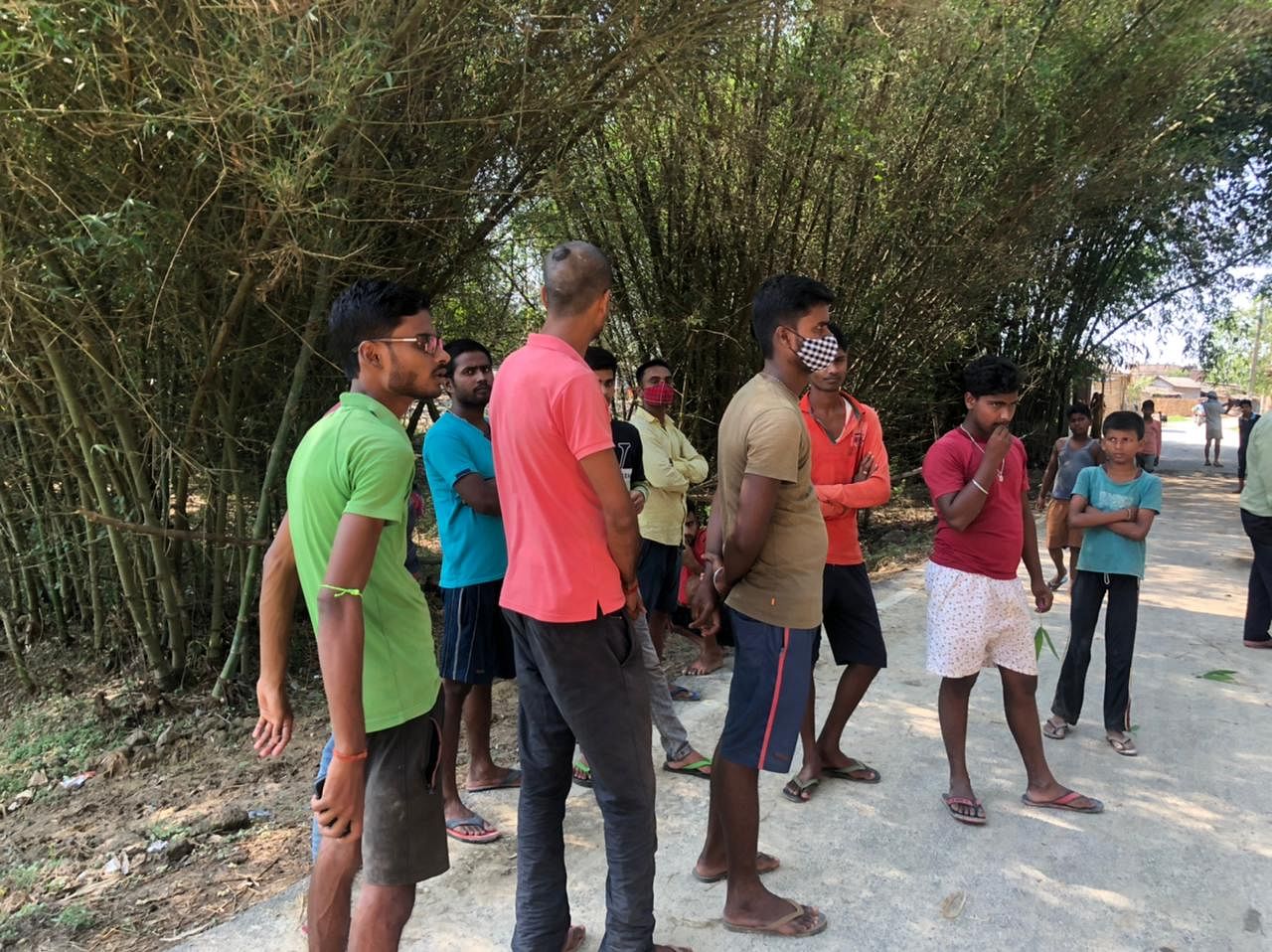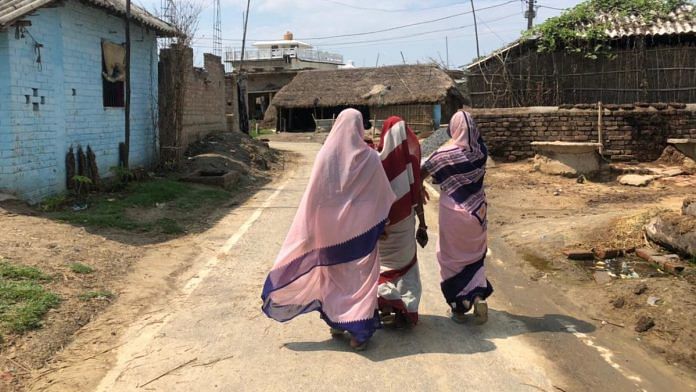Madhubani: At the Jiroga panchayat’s middle school campus, Iftikhar Ahmad, a 37-year-old medical officer, was ready to launch a testing camp for local residents. Equipped with rapid antigen testing (RAT) kits, Ahmad and two lab technicians — who arrived here Friday afternoon after a four-hour journey from the district headquarters — waited.
They waited. And they waited. And they waited.
By 3.30 pm, when time came to wrap up the camp, only nine people had been tested in the village of approximately 2,800 residents. Of these, seven were members and staff associated with the district and village administration, who underwent the test to convince the villagers it was a safe exercise.

Through the duration of the camp, some villagers lingered on the fringes of the school, looking in. The staff invited them in to get tested. They refused.
One migrant labourer was worried the team members may be Covid carriers. Others in the village told ThePrint they feared a positive diagnosis would be a death sentence. They said those who test positive would be taken to a distant building and dumped there to die. Stoking this fear, they added, is the experience last year, when the returning migrant workers were quarantined in “decrepit buildings” where they were “exposed to snakes and scorpions”.
Most admitted the source of their information — including on “hacks” and medicines to beat Covid — is YouTube or other social media.
Speaking to ThePrint, Madhubani District Magistrate Amit Kumar expressed concern about the trend of misinformation and said it needs to be tackled aggressively. One of the solutions on the table is using the potential source of misinformation — social media — to defeat it.
Also Read: ‘Jo hospital jayega woh maara jayega’: Why no one wants to go to Patna’s top govt facilities
At the testing camp
Madhubani district in Bihar falls at the centre of the historical Mithila region, which runs along India’s border with Nepal and is famous for its distinctive art form.
Jiroga is a part of Laukahi, one of the 21 development blocks of Madhubani district. With a population of approximately 2.8 lakh, the block spans 64 villages. As of 21 May, the block had 115 active Covid cases and 15 containment zones.
The testing camp at Jiroga was held three days after 13 Covid cases were detected in its neighbouring village of Bharphori.
The team that visited Jiroga for the camp — Ahmad and lab technicians Santosh Kumar, 29, and Sanjay Jha, 22 — started its journey from the district headquarters in a van at 9 am, accompanied by this reporter. A driver was on duty for the tough 80-km drive through the area’s rough roads.
When the team arrived at the village around 1 pm, the site of the camp — the middle school — was waterlogged from recent rains.
Block Development Officer Preetam Chauhan had informed village head Shravan Kumar and local accredited social health activists (ASHA) about the testing drive a day before.
Beginning Friday morning, Asha workers had started going door-to-door to inform villagers. By the time the van reached, Asha workers had already conducted two door-to-door rounds. The village head had also asked people to come forward for testing.
The testing team had 400 RAT kits. As they prepared for the villagers to arrive, one lab technician put on a PPE kit, while the other arranged chairs, and set up the kits on the desk. Meanwhile, the doctor sat with a register as some Asha workers took a seat in the corridor.

Half an hour passed, but no villager turned up. As the village head arrived, three of the Asha workers — accompanied by their husbands — decided to make one more round of the village.
Kamini Devi (40), Savitri Devi (42) and Ekavari Devi (38) and their husbands encountered different reactions at different households but each family refused to get tested. A few made excuses, a few fought with the Asha workers, and others accused them of having been paid for spreading the coronavirus.
The door-to-door campaign lasted 30 minutes.
When the team returned, Ahmad saw some people hanging around at the school boundary. He decided to get tested to instil some confidence in villagers.
With the same aim, the three Asha workers’ husbands got tested too.
Another hour and a half later, only these four tests had been conducted. All came back negative.
The doctor then got up and walked towards the crowd outside the school.
“See, four people have got tested and the results are negative. Please come forward. I am assuring you that nothing will be done to you even if you test positive,” he said.

A 28-year-old migrant worker Sunil Yadav, who returned to the village during last year’s lockdown, shot back. “Khud to ye kavach pahenkar aaye ho, 100 logon ka testing karke humko corona failaoge. Hum kyon karayen testing? Tum log bahar se aaye ho, tumko corona hua toh (You have safety gear. You will test 100 people and spread Covid? Why should we get tested. You people have come from another place, what if you have Covid)?”
The doctor tried to persuade them some more. After a few more futile efforts, he returned to his desk.
The village head then requested his aides to get tested. They are reluctant as well but they relent. An Asha worker comes forward to get tested too.
Over the next two hours, these are the only tests that have been conducted.
Two young men subsequently approached this reporter, said they have a fever and asked whether they should get tested. They eventually did get tested. The result came back negative, as it did for the others.
These two were the only villagers who were tested by the time the camp was wrapped up. The team then got ready to start its journey back to the district headquarters.
Also Read: BJP ‘anti-Muslim’, vaccines will ‘sterilise’ us — why these Bihar Muslim villages shun Covid jab
Tackling misinformation
Before the journey back, ThePrint spoke to dozens of villagers to ask them why they were reluctant.
“Pichhle saal inhone school mein saanp bicchuon ke saath chhod diya tha. Kyon test karayen? Test positive aane ka matlab hai ki ya hospital le jakar maar denge ya fir sarkari school (Last year, they left Covid positive people in schools with snakes and scorpions. Why should we get tested? A positive diagnosis means you will be dumped to die in either a hospital or government school),” said Suresh Kumar Yadav, 44.
Most of them said they got their information about the pandemic from social media, and have been using the tips gathered — “drinking hot water, eating spicy food” — to prevent and treat symptoms. Many added that they rely on village quacks for treatment, who give out medicines for Rs 150 to those who complain of fever, cold and cough.
Block Development Officer Preetam Chauhan said he had already told the village head about the drive but added that “people are apprehensive”. The village head, he added, had told him that no one would turn up.
“There is no vaccine hesitancy in our block but they don’t turn up for testing. Many times, we end up testing 150 people in some villages but many a time the Jiroga episode is witnessed,” he said.
District Magistrate Amit Kumar said the administration has decided on some ways to address the misinformation.
“I have decided to tackle this misinformation by engaging influential Mithila people. We will ask them to make two-minute videos regarding testing and Covid stigma,” he added.
“Apart from that, we will also start publicity campaigns in remote blocks where people will be informed that even if someone tests positive, he/she will not be taken anywhere.”
The third strategy, Kumar said, will be to “ask PDS dealers who provide rations in villages to counter this fear and misinformation since they interact with most of the villagers”.
Also Read: Covid killed parents, 3 Bihar siblings now fight virus stigma — ‘no one even offered food’



